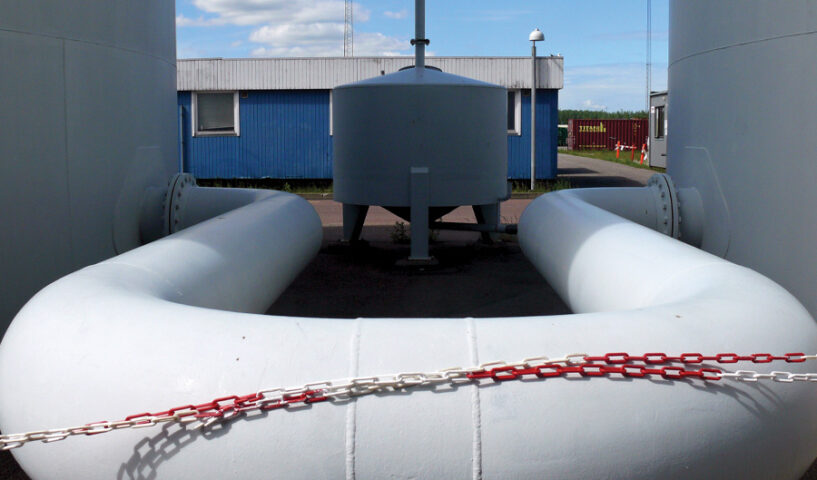
Embarking on a transformative journey towards sustainable heating solutions
6th October 2023
Meeting the Global Methane Pledge through biogas
9th October 2023District heating in Ireland

District heating pipes at Amagerværket power plant, Copenhagen.
The built environment accounted for 12.3 per cent of Ireland’s greenhouse gas emissions in 2021. Climate Action Plan 2023 (CAP23) plans for up to 2.5 TWh of district heating by 2030 as part of decarbonisation efforts in this area.
CAP23 explicitly states that, for Ireland to reach its “highly ambitious” decarbonisation of built environment targets, all buildings will be required to switch to either heat pumps or district heating by 2050. Accordingly, the plan lays out interim targets for up to 0.8 TWh of district heating by 2025 and 2.5 TWh by 2030.
Of the district heating to be developed by 2030, the majority will be used in residential buildings, with CAP23 key performance indicators (KPIs) for the decarbonisation of residential housing outlining hopes for up to 0.7 TWh by 2025 and up to 2.5 TWh by 2030. Public and commercial heating decarbonisation contains much smaller KPIs of up to 0.1 TWh of district heating by 2025 and up to 0.2 TWh by 2030.
CAP23 also contains within it a commitment to finalise and implement the report of the District Heating Steering Group in order to supply up to 0.7 TWh of district heating for residential heating. The steering group was founded under the aegis of Climate Action Plan 2021 and reports annually to the Government. It is chaired by Department of the Environment, Climate and Communications Assistant Secretary Barry Quinlan and contains representatives from said department, the Department of Housing, Local Government and Heritage, the Sustainable Energy Authority of Ireland (SEAI), the Commission for Regulation of Utilities, the National Development Finance Agency, Dublin City Council, South Dublin County Council, Limerick City and County Council, and the City of Dublin Energy Management Agency.
Published 31 August 2023, the steering group’s 2023 report returned 11 recommendations, the most notable of which included the foundation of a National District Heating Centre of Excellence within SEAI. Further recommendations included the undertaking of economic analysis and feasibility studies by the centre of excellence, the review of supports for renewable heat production by SEAI and the Department of the Environment, Climate and Communications, that the Department of Housing, Local Government and Heritage strengthens references to district heating in the review of the National Planning Framework, and the development of a long-term strategy for district heating.
The National Heat Study states that district heating could, in time, supply as much as 50 per cent of Ireland’s heat demand; countries such as Denmark are leaders in the field, with 60 per cent of all houses heated through district heating networks, a figure that rises to 90 per cent in Copenhagen. District heating in Ireland, in comparison, is in its infancy, but projects such as the Tallaght District Heating Network and Energy Centre, opened in April 2023 and supplying heat to 32,800m2 of buildings using excess heat from a nearby data centre, give hope that this technology will play a key role in the decarbonisation of Ireland’s buildings.
